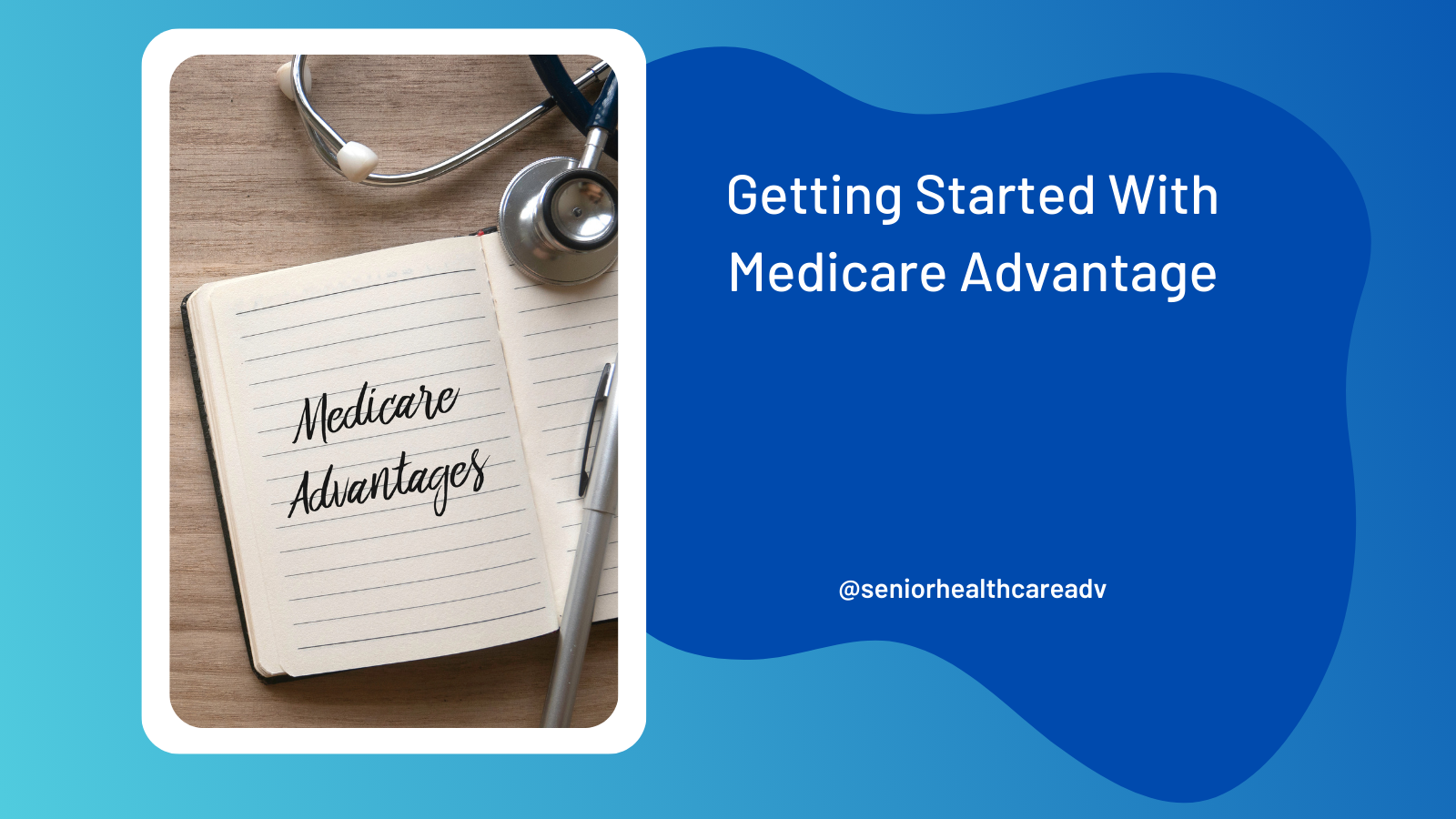Getting Started With Medicare Advantage
Choosing the best Medicare advantage plan can become a long and excruciating process without having the right team of experts to support you in your decision-making. It may take you less than an hour to pick a Medicare Advantage plan, but the decision you make determines your access to healthcare services and the cost associated with those services. Many Medicare beneficiaries don’t understand this concept because only a few take the time to compare their options. We have heard too often; Medicare beneficiaries choose to remain in an Advantage plan that does not suit them simply because they have become comfortable or nervous about their doctors and medications. Admittedly, doctors and medications are two essential topics to cover. Still, many people overthink the process of verifying their doctors and prescriptions and scare themselves out of hundreds and thousands of dollars in benefits and savings.
It May Be Too Late…
According to the National Bureau of Economic Research, many seniors only decide to look for and pay attention to their best Medicare Advantage options after being diagnosed with a severe condition. Inevitably, these seniors are happy to know that they may be able to change or get into their best plan if they have a qualifying enrollment election but saddened to learn that even the best Advantage plan will not cover medical bills they had before the plan. Usually, their most significant and most costly medical need is already over when they finally enroll in the best Medicare Advantage plan.

📚 Related: Is It Safe for Older Adults to Exercise?
Our Mission
Our mission at Senior Healthcare Advisors is to ensure this does not happen. We take pride in being thorough and efficient. We respect the time of our clients’ time while understanding and meeting their healthcare needs. You can count on us to be brutally honest in evaluating your health needs and, like a good friend, guide you to make good, healthy decisions that serve and benefit you. Our dedication begins with this informative newsletter that breaks down every aspect of Medicare health coverage options and answers the most frequently asked questions about Medicare health insurance.
Get Medicare Now
You are entitled to Part A when you turn 65 and have worked 40 quarters (10 years).
You may voluntarily start Medicare Part B if you do not have any other medical coverage.
You may also be entitled to Part A if you have been disabled for more than 24 months. You are eligible starting the 25th month of being disabled.
#1. Medicare Part A – Hospital Coverage
Medicare Part A covers inpatient hospital care, skilled nursing facility care, nursing home care, hospice care, and home health care. Part A does not come with a monthly premium once you or your spouse have paid Medicare taxes for 40 quarters or ten years. You can buy Medicare Part A coverage if you don’t qualify for this “premium-free Part A” coverage because you don’t meet the tax criteria. In 2023, the Medicare Part A premium will be either $278 or $506 monthly, depending on how long you or your spouse worked and paid Medicare taxes. It is not required for you to have both Medicare Part A and B together (unless you are interested in having the benefits of a Medicare Advantage plan).
#2. Medicare Part B – Medical Coverage
Medicare Part B covers medically necessary medical and preventative services. These include medical supplies and services such as durable medical equipment like a wheelchair or oxygen tank, diabetic supplies, and medical services required to diagnose and treat medical conditions such as an MRI or CT scan, lab work, and radiation services. Other covered medically necessary services include clinical research, ambulance services, mental health services inpatient, outpatient, and partial hospitalization, and prescription drug coverage. In 2023, the standard monthly premium for Medicare Part B was $164.90, which is automatically deducted from either your social security benefits payment, railroad retirement board benefit payment, or the Office of Personnel Management benefit payment. If you don’t get any of the benefits mentioned, you will get a monthly bill from Medicare. Medicare Part B also comes with a deductible. In 2023, the Part B deductible was $226. After you meet the deductible, you typically pay 20% of the cost of the Medicare-approved amounts for your doctor services, outpatient therapy, and medical equipment.

What is Not Covered?
Medicare Part A and Part B do not cover everything. They do not cover long-term care, dental, vision and hearing care, foot care, and acupuncture. Acupuncture may not be your most pressing issue. Still, if you need dentures, implants, fillings, an ear or eye exam, glasses, or hearing aids, these benefits are not provided with your original Medicare (Part A and B). This is where Medicare Part C, a Medicare Advantage plan, becomes helpful in fulfilling your healthcare needs. Senior Healthcare Advisors is dedicated to finding available enrollment periods to help you get into the best Medicare Advantage plan for your needs.
Medicare Part C – Medicare Advantage Plan
Medicare Advantage plans or Part C are “all-in-one” plans offered by private insurance companies contracted with Medicare. You still have Original Medicare (Parts A and B) when you join a Medicare Advantage plan. However, you receive your A and B benefits through a private insurance company. These plans bundle your Medicare Part A, Part B, and Part D (prescription drug plan) into a Medicare Advantage plan with prescription drug coverage or “MAPD” plan. In addition to the core A, B, and D, these plans add additional benefits like a gym membership, home-delivered meals, Part B giveback, hearing, dental and vision, over-the-counter spending allowance, and much more. Most MAPD plans have additional benefits on top of the Part B premium that may be available to you.
Medicare Part D – Prescription Drug Plan
Medicare Part D, also “a stand-alone” prescription drug plan (PDP), provides coverage for your prescription drugs. When you have a Part D drug plan, you pay the cost of the premium, yearly deductible, copayments or coinsurance, cost in the coverage gap, and cost if you pay a late enrollment penalty—qualifying for Extra Help (Low Income Subsidy), shields you from these payment responsibilities, leaving only small copays for some medications. A late enrollment penalty is applied to your prescription drug coverage in the future if you had a period in lapse coverage for prescription drugs and did not have other prescription coverage as good as Medicare’s. If you have a penalty, you will be notified by Medicare or Social Security. When you get Extra Help, you do not have to pay this penalty. If you don’t get Extra Help and you don’t agree with or cannot afford the sentence, you can apply for a “reconsideration.” You must continue to pay the penalty until a decision is made on your appeal.

***Disclaimer: This is for educational purposes only and is not intended to replace the advice of your doctor or other health care provider. We encourage you to discuss any further questions or concerns you may have with your provider.***





